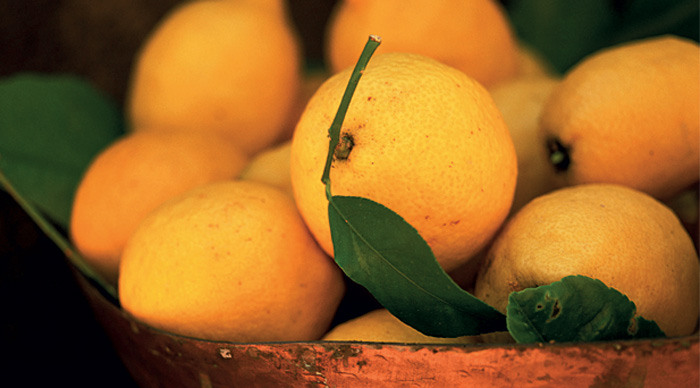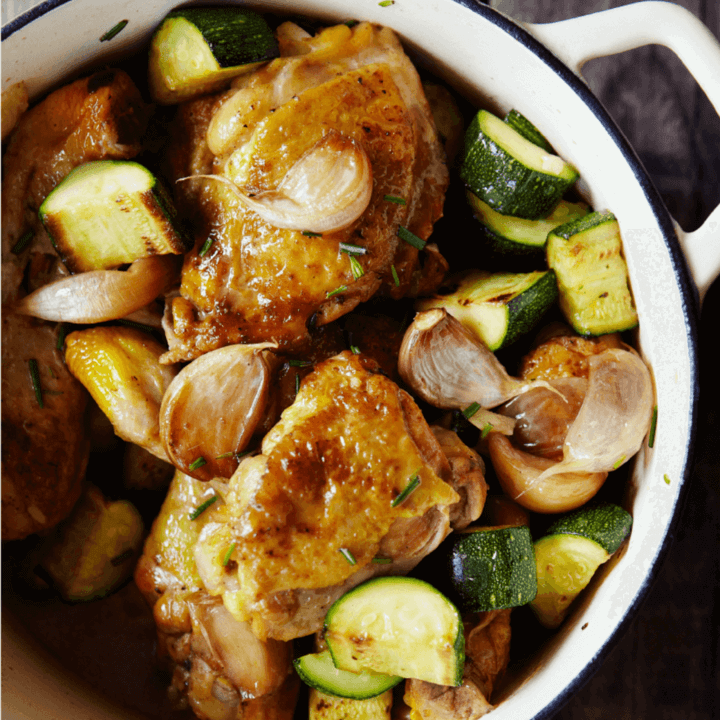
Fig & Lentil Salad from Virtually Vegan
Summer and salad go hand-in-hand and this offering from Heather Whinney’s Virtually Vegan is a fresh, sweet, figgy take on a summertime staple. Complete with a harissa

Dr. Penny Stanway from The Miracle of Lemons
Everyone loves the fresh scent and tangy taste of lemons, but you can also use lemons as a fantastic natural cleaning product. Use lemons for many household chores and can help keep your home fresh, clean and sparkling. Note that it is fine to use bottled lemon juice instead of fresh lemon juice for household tasks.
1. To make the air in a room smell fragrant, add a few drops of lemon essential oil to a spray bottle half filled with water, shake well and spray.
2. Use lemon to scent your clothes, just leave thinly pared strips of lemon peel to dry out well over several days, then put them in your wardrobe or chest of drawers.
3. Add strips of dried lemon peel to a bowl of fragrant dried flowers or leaves for a pot pourri to scent a room. Sprinkle the contents of the bowl every couple of weeks with a few drops of lemon essential oil to refresh the aroma.
4. Make a wonderfully scented pomander by studding a lemon with cloves, then tying some ribbon around it so you can hang it up.
5. Deodorize the drain of your kitchen sink by putting the juice of a lemon into a glass of water and pouring the lemon water down the plughole.
6. Remove the odour of fish, onion or garlic from your hands by rubbing them with fresh lemon juice.
7. Freshen your vacuum-cleaner bag by sprinkling a few drops of lemon essential oil on to a paper tissue and putting this into the bag.
8. Keep your fridge smelling sweet by putting half a lemon on a saucer.
9. Make your air humidifier smell good by adding a few drops of lemon juice to its water container.
10. Make a waste-disposal (garbage disposal) unit smell fresh by putting the peel of a lemon through it and rinsing with water.
11. To freshen a carpet or rug, mix 10 drops each of lemon and lavender essential oils into 125g/4½oz/1 cup of bicarbonate of soda (baking soda). Put in a covered container overnight so the bicarbonate of soda absorbs the oil. Next day sprinkle the mixture over the carpet or rug, then vacuum up the powder.
12. Remove grease with lemon juice.
13. For a natural cleaner for wooden, laminate or ceramic-tiled floors, pour into a spray bottle 240ml/8fl oz/1 cup of white vinegar, 240ml/8fl oz/1 cup of water, 5 drops of lemon essential oil, 2 drops of tea tree essential oil and 5 drops of lavender essential oil. Spray this mixture on to the floor and wipe clean with a microfibre cloth or a mop. Alternatively, add 4 tablespoons of white vinegar and 10 drops of lemon essential oil to a bucket of water and mop the floor with this scented solution.
14. To clean and deodorize a microwave cooker, mix 30g/1oz/¼ cup of baking soda, 1 teaspoon of vinegar and 6 drops of lemon essential oil together. Use a sponge to apply this paste to the inside of the microwave. Rinse with water and leave the door open for 15 minutes to allow for drying.
15. To remove limescale from around a plughole or tap, rub with the cut end of half a lemon, then rinse.
16. To clean windows, rub the cut surfaces of a lemon quarter over the glass, wipe off with a damp cloth, then dry with a dry cloth.
17. Use lemon essential oil to polish surfaces, as its limonene acts as a solvent, dissolving old wax, fingerprints and grime.
18. Brighten copper cookware or ornaments by dipping half a lemon into salt, bicarbonate of soda (baking soda) or baking powder, then rubbing it over the surface. The lemon acids dissolve the tarnish, and the salt, bicarbonate of soda or baking powder act as a mild abrasive to clear it away. Rinse with water and dry with a cloth or a paper towel.
19. To make a furniture polish, combine in a glass jar 2 parts olive oil with 1 part strained fresh lemon juice. This polish accentuates the beauty of the wood; it also nourishes it and prevents it from drying out.
20. Polish dulled surfaces of aluminium or chrome objects by rubbing with the cut surface of half a lemon, then buffing with a cloth.
21. Add a squeeze of lemon juice to disinfect drinking water that you think might be contaminated with bacteria.
22. Use lemon essential oil to clean kitchen, bathroom and other surfaces that are likely to be contaminated with bacteria. Several of its constituents, including limonene, have antibacterial properties.
23. Disinfect kitchen chopping boards with lemon juice, as it contains citric and other acids, and bacteria dislike an acidic environment.
24. If your hands are stained (for example, after peeling onions), rub them with lemon juice to remove the stains.
25. To remove sweat stains from clothes, scrub gently with half and half lemon juice and water.
26. To remove stains from white laundry, mix 1 tablespoon each of lemon juice and cream of tartar and apply the mixture to the stain. Leave for a few minutes, then rinse with water. For persistent or extensive staining on a fabric that is washable in very hot water, boil the item in a pan containing 5 tablespoons of cream of tartar to every 1.1 litre/2 pints/4ó cups of water, then rinse.
27. For stains on fabrics that can be washed in hot water, pour 240ml/8fl oz/1 cup of lemon juice into the washing machine during the wash cycle.
28. An alternative method is to dampen the stain and sprinkle it with cream of tartar. Carefully hold the stained area in the steam from a boiling kettle, then rinse well with water.
29. To remove rust spots or mildew stains on washable clothing, sprinkle the area generously with salt, then squeeze fresh lemon juice over it. Leave the item for several hours, ideally in direct sunlight. Keep the stain moist by applying more lemon juice as necessary. Brush off the salt and then launder as usual. (Be warned – putting household bleach on rust spots will set the stain.)
30. Sprinkle lemon juice over berry stains on clothing or other fabric, to help them fade.
31. To remove stains from plastic food-storage containers, just mix 1 tablespoon of bicarbonate of soda (baking soda) with a few drops of fresh lemon juice to form a paste, then rub this over the stains.
32. To clean stains on Formica worktops leave fresh lemon juice for 45 minutes. Then sprinkle with bicarbonate of soda (baking soda), scrub gently and rinse.
33. If kitchen or other cupboards are infested with insects, wipe them with lemon essential oil on a cloth. Its limonene is toxic to insects but not to humans.
34. Use a rotten lemon to repel ants.
35. To repel clothes moths, put strips of dried lemon peel into a little muslin bag and place in cupboards and drawers.
36. Deter insects from coming into your kitchen by sprinkling lemon juice around door thresholds and on windowsills, as its scent will deter the entry of insects.

Summer and salad go hand-in-hand and this offering from Heather Whinney’s Virtually Vegan is a fresh, sweet, figgy take on a summertime staple. Complete with a harissa

Too Good to Waste by Victoria Glass is THE guide to getting the very most out of your food, in the most delicious way possible! So much

Today we’re sharing a much coveted Real Bread: Slow Dough recipe – Cinnamon and Hazelnut Knots! These sweet knots are beloved all over Scandinavia, whip

We’re gearing up for the publication of French Countryside Cooking by Daniel Galmiche, coming your way on May 14th (pre-order your copy right here)! To celebrate, we’re sharing

Watkins Media Limited
Shepperton House unit 11
89 Shepperton Road
London, England
N1 3DF

Watkins Media Limited
Shepperton House unit 11
89 Shepperton Road
London, England
N1 3DF